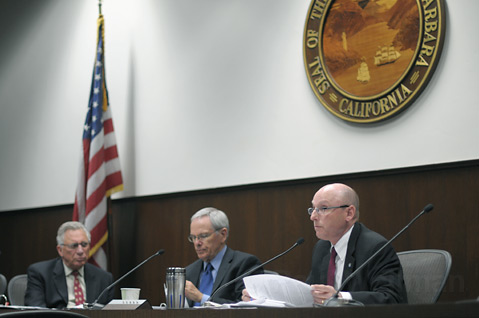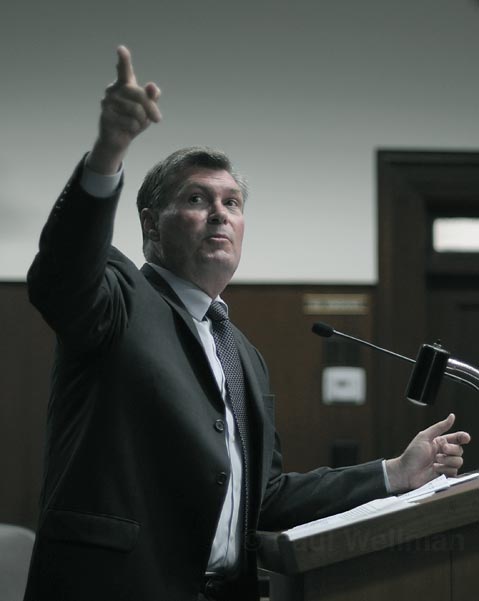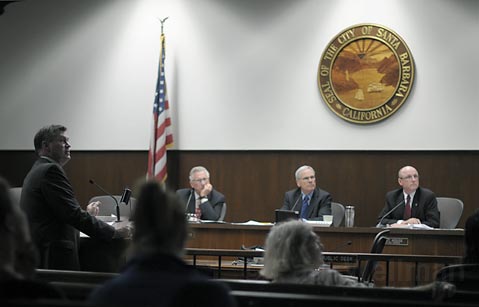Stricter Interpretation
City Attorney Claims State Laws Forbid Storefront Pot Dispensaries

The issue of medical marijuana continued to confound all efforts at consensus, as members of the Santa Barbara City Council Ordinance Committee struggled to come to terms with City Attorney Steve Wiley’s new, and more restrictive, interpretation of what state law allows and does not allow.
While Wiley did not say that the law bars medical pot dispensaries outright, his new interpretation would never have allowed the number of dispensaries currently permitted in the city—not even those that would be legal under the stricter regulations the council has been contemplating. According to Wiley, medical marijuana providers can make no profit; they can be paid only to recover costs and “reasonable compensation” for services rendered. In addition, provider and patient need to be part of the same co-operative, and cultivation must take place within the tight closed-loop confines of the co-operative relationship. Storefront operations as Santa Barbara has seen them exist in violation of state law, he said.

Medical marijuana advocates, like councilmember Grant House, were clearly upset by Wiley’s new tack. Uncharacteristically blunt and confrontational, Grant challenged Wiley, stating, “I don’t know how you’re going to convince me.” How could sales be illegal, House demanded, when the California Franchise Board requires medicinal marijuana dispensaries to pay sales tax? Wiley responded that as a lawyer, it was his job to make sense of state laws, not the practices of the tax board.
Wiley upset House and the medical marijuana advocates by suggesting that some of the restrictions recently embraced by the Los Angeles City Council might guide Santa Barbara’s deliberations. Los Angeles, House argued, was a terrible example; draconian measures were required there only because the L.A. City Council failed to act until well after the problem was out of control. By contrast, House said, Santa Barbara has consistently sought to regulate pot dispensaries.
House further countered that the state Attorney General had already addressed many of the questions Wiley raised, in a legal opinion that described in detail under what circumstances store front dispensaries could operate in compliance with state law. House repeatedly challenged Wiley to include the Attorney General’s opinion in his advice to the council.

House’s fellow committee member Frank Hotchkiss was less perturbed. “I don’t think the Attorney General’s guidelines are enough,” he said. Hotchkiss, who has repeatedly said medical marijuana serves a real need, said the real problem was “one of temptation.” He stressed the need to keep dispensaries away from recovery centers. People who obtained medical pot cards might be inclined to sell their wares, and people in recovery programs, he warned, might provide “a willing audience.”
The matter remains far from resolved, and will be next addressed by the Ordinance Committee on April 13.



